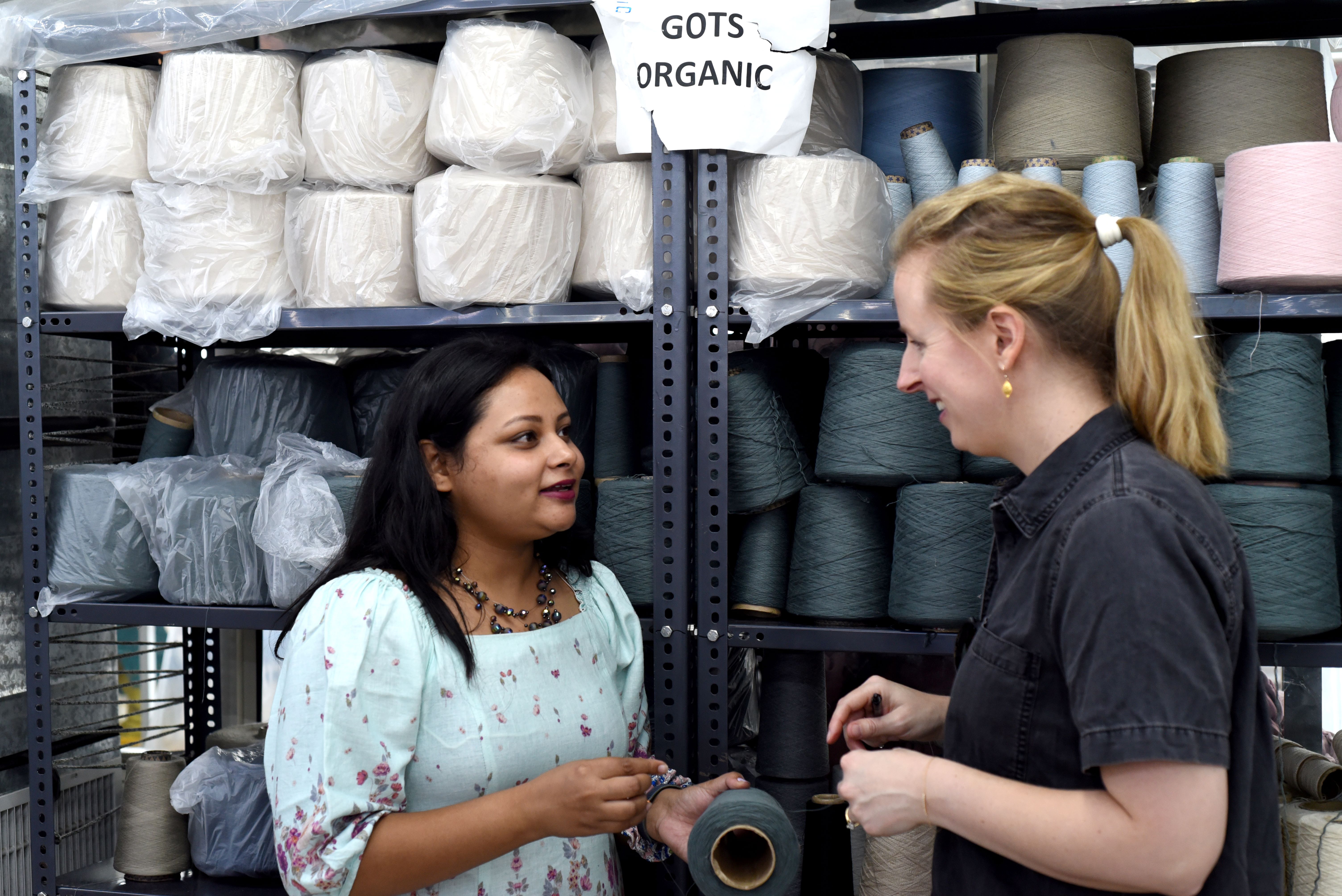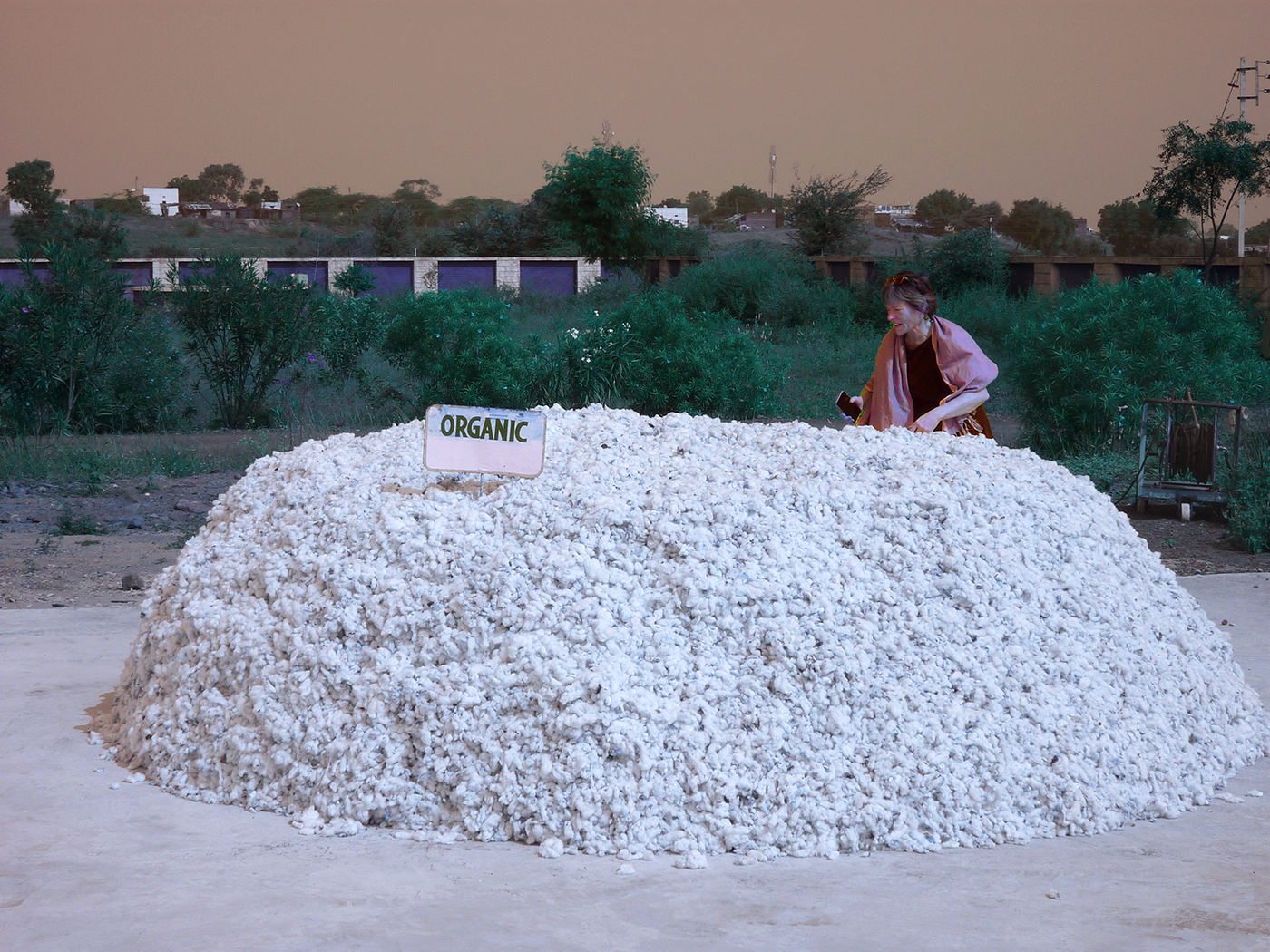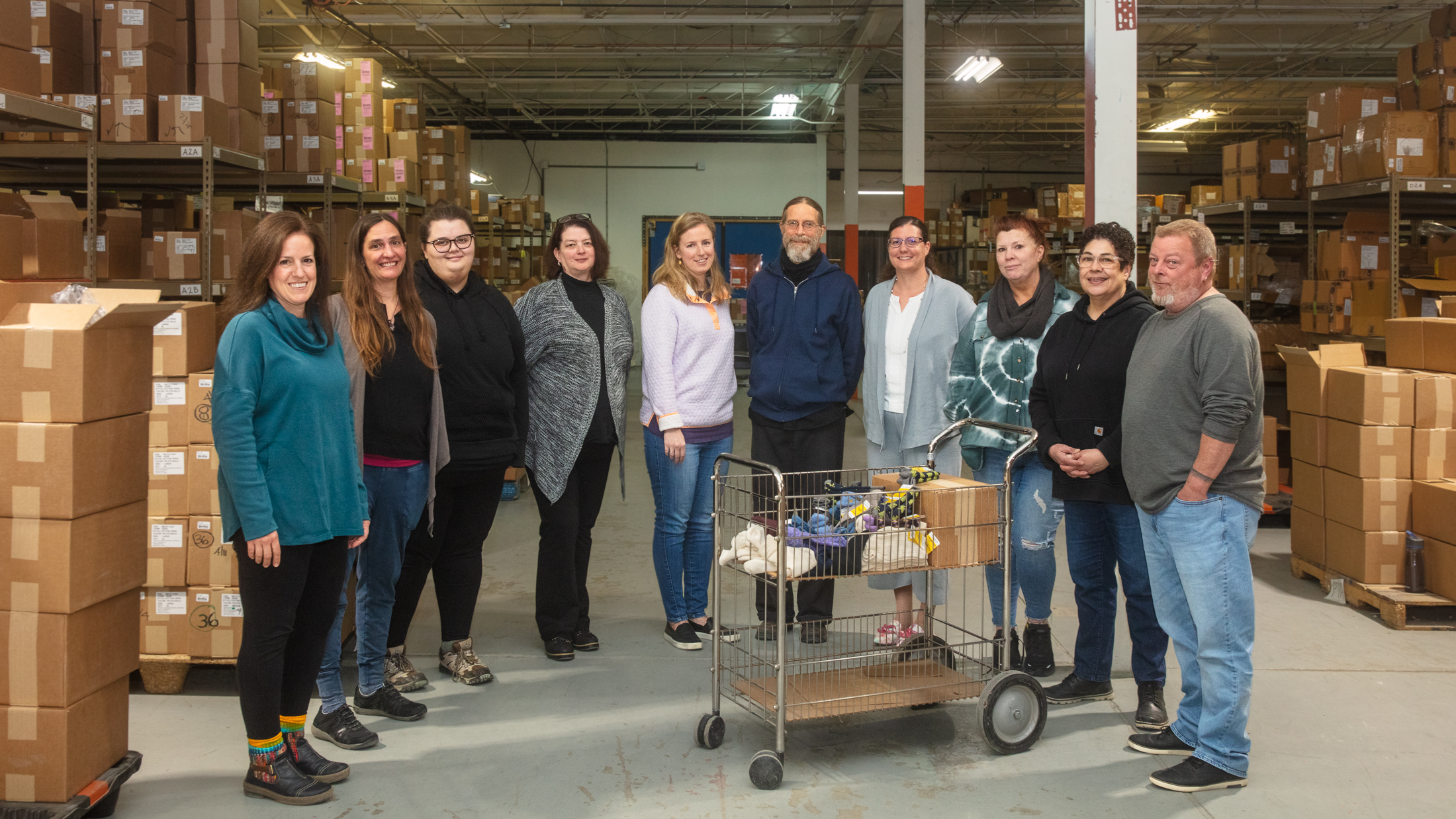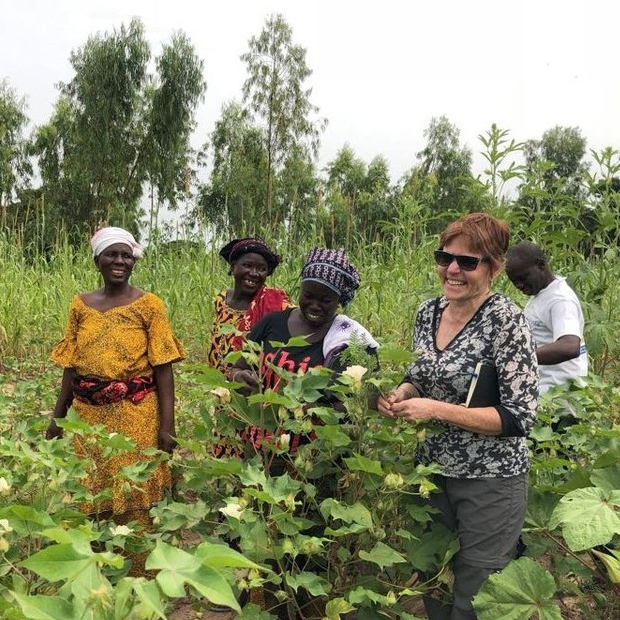Real Fair Trade
Maggie's Organics is committed to total transparency, total sustainability, and true ethical practices from farm to finish.
That's why, when existing industry certifications and pledges fell short, we created our unprecedented Real Fair Trade pledge. The Real Fair Trade pledge represents our dedication to continually examine every aspect of Maggie's Organics. We hope that by being honest with our customers, our partners, and ourselves, we will prove that Real Fair Trade isn't a talking point--it's a requirement.
Below you can see how we try to live out our values of Transparency, Community, Longevity, Integrity, and Kindness. Thank you for supporting these efforts. Thank you for shopping Real Fair Trade.




Transparency
We endeavor to be completely transparent with our supply chains.This includes all components used to make our products and the processes by which our products are made. Learn in-depth about each step in the journey from farm to finished good in Behind the Label.
Community
We actively seek to honor all the communities involved with our products, from the dedicated family farms growing our cotton to the Maggie's employee owners who are lovingly packing and mailing your orders. We think this commitment shows up in the touch of our products.
Here are some examples of how we express this value:
We allocate a portion of our sales from specific products, like our Bee Keeper and Biodiversity socks, to support environmental causes.
We collaborate with our employee owners and suppliers, we support various needs in the areas where we live. Our efforts this year include scholarships for education, internships, training, and improved access to recycling services.
We donate slightly irregular socks and clothing to local and national homeless shelters and nonprofit organizations.
To support farmers, we offer early down payments to help cover their costs before the harvest arrives. We prioritize meeting the actual needs of our farmers and suppliers to enhance the well-being of their workers and communities, rather than giving just what we think will look good in marketing.
Longevity
In 1992, our journey began with a question: Is it possible to establish a successful, sustainable business while protecting the limited resources of the planet and respecting and dignifying each worker at every stage of production? Our answer is yes, it's not only possible but essential, and we have spent the past three decades attempting to achieve this. As we've grown and evolved, your unwavering support and encouragement have fueled our commitment to this mission. Our vision extends far beyond today; we aim to continue conducting business in this ethical manner for generations to come.
To solidify this commitment to longevity, Maggie’s is becoming an employee-owned company in partnership with Teamshares. Teamshares specializes in transitioning businesses from retiring owners to employees. At the outset, 10% of the stock was granted to all employees. Over the next 15-20 years, we're progressively increasing employee ownership to 80%.
Our dedication doesn't end here. We will persistently prioritize enhancements to quality, environmental sustainability, and improved living conditions for workers within our supply chains. We remain committed to nurturing direct relationships with organic small family farmers and maintaining our enduring partnerships with our producers. Our promise is to keep listening and learning from both our suppliers and customers to ensure the creation of the best, highest-quality products. We are committed to remaining the Maggie's you know and love and continuing the legacy for the next generation.
Integrity
We're committed to delivering on our promises, which is why we're deeply involved in every aspect of our products, from the amount of spandex to the finishing of each toe seam. Every product undergoes rigorous testing by an independent lab to ensure all label claims are accurate, and we list everything that goes into our products, even down to the 1/10th of 1%. We proudly display which of our products adhere to strict industry standards, subject to annual audits.
In 2014, Maggie’s first earned certification to the Global Organic Textile Standard (GOTS), the leading worldwide standard for organic fibers, encompassing ecological and social criteria. This certification covers the entire textile supply chain, ensuring organic status from the harvesting of raw materials to environmentally and socially responsible manufacturing and labeling. You can explore our certified supplier listing on the GOTS website.
Maggie’s Organics is also a proud member of the Fair Trade Federation and the World Fair Trade Organization. These memberships reflect our commitment to a just and sustainable global economic system, where every purchasing and production decision considers the well-being of people and the environment. These organizations play a crucial role in the global fair trade movement, fostering equitable and sustainable trading partnerships and creating opportunities to alleviate poverty. To join, applicants undergo a thorough screening process, detailing every production stage for each product. A committee of peers and stakeholders evaluates applicants regarding working conditions, fair wages, safety, environmental responsibility, financial transparency, and more. Completion of this review process distinguishes members and demonstrates our commitment to fair trade practices, not just in individual products, but across our entire business.
Kindness
At the heart of what we do is the core principle of kindness.
To us, that means treating our earth, our suppliers, our customers, and ourselves with respect and equity. Working to ensure that all are having their needs met. Where each of the hands involved in making our products have a voice and our earth is not damaged from harmful processes.
When you wear something from Maggie's, we think you will be able to feel the difference.
